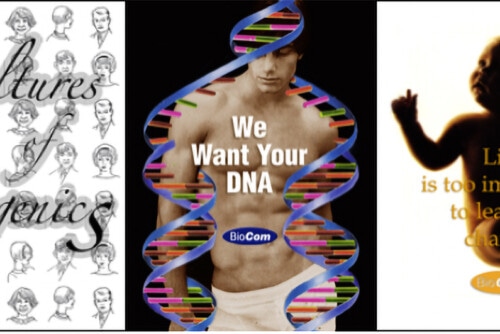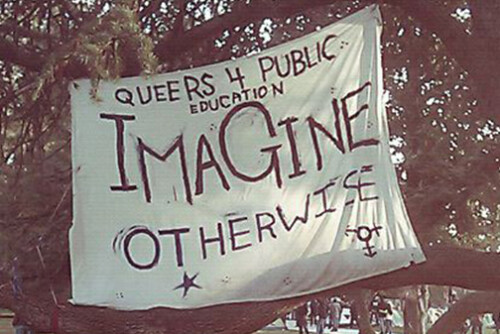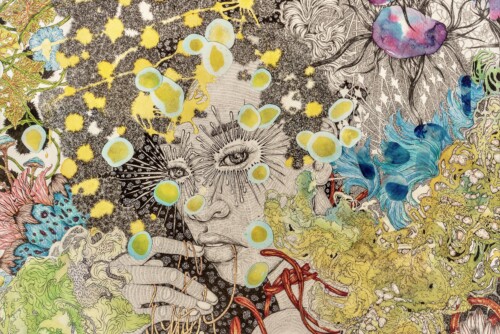Significantly, Haraway’s work is also closely connected to the socialist-inspired promise of politicised biology that is a legacy in many ways epitomised by the British inter-war biofuturism. This tradition inspired Joseph Needham, one of the subjects of Haraway’s PhD on embryology, and later strongly influenced Gregory Bateson—the son of British geneticist William Bateson, and one of the founders of the History of Consciousness program at th University of California, Santa Cruz where Haraway has taught since 1980.
As many feminists have argued, Haraway is in many ways the torch-carrier both for Firestone’s impatience with Goddess-loving, pregnancy-worshipping, feminist Luddites, and her enthusiasm for technologically-assisted, disloyal, and perverted, evolution. The difference between their two manifestos is an effective measure of the rapid dissolution of the primary categories grounding Firestone’s analysis in the relatively brief 15-year-period separating her cybernetic manifesto from the birth of Cyborg feminism. It seems that in this intervening period—punctuated by the birth of Louise Brown (the world’s first IVF baby)—quite a few ‘natural biological’ categories, including those that were taken for granted by prominent feminist thinkers such as Simone de Beauvoir, had begun to dissolve.
For Firestone, the hyphen alone in her reference to “biology itself—procreation” tells us more than enough about her inheritance from De Beauvoir, her heroine, to whom the Dialectic is dedicated, “because she endured.” It was similarly De Beauvoir who motivated Sherry Ortner to pen her famous thesis that woman is to nature what man is to culture, 1 and it was finally De Beauvoir’s insistent pessimism about the enslavement of the human female to the reproduction of the species that finally led Judith Butler to reconstitute De Beauvoir’s famous pronouncement by revealing gender as the true primordium of “the sex distinction.” 2 As even the Olympic Committee now knows, biological sex is a continuum. It is chromosomally unstable and even the germline switches sex. 3
- Sherry Ortner, “Is Female to Male as Nature is to Culture,” Feminist Studies 1.2 (1972): 5-31.[↑]
- Judith Butler, Gender Trouble: Feminism and the Subversion of Identity (New York: Routledge, 1990).[↑]
- “Biology itself” is a revealing phrase. When Foucault refers to “life itself” he invokes a technology of representation—a means by which life could be given a newfound unity through a genealogical model of nature. Epistemologically this new unity of life gave birth to biology, the first discipline of the modern life sciences, which, as Foucault reminded readers of The Order of Things in 1966, did not exist until the late 19th century.[↑]



